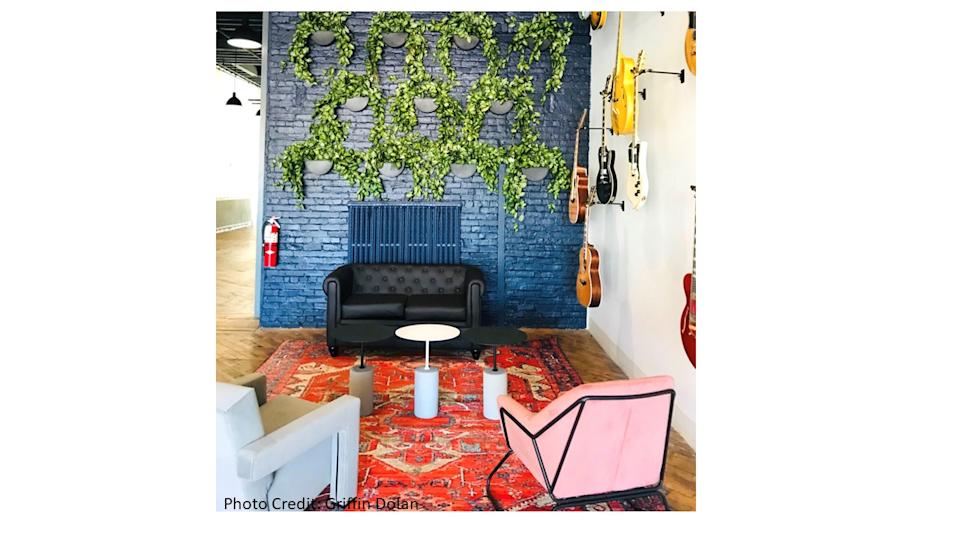Coronavirus battered the co-working industry, now it is making a comeback
It has been a rough year for co-working companies — and not just WeWork. Memberships and contract renewals dropped 40% since March, and membership inquiries dropped 70%, according to a survey of 600 co-working companies by Coworking Insights.
Health concerns made flex spaces “less appealing” during the pandemic, but co-working spaces are still one of the best-rated real estate investment prospects of 2021, according to London-based multinational professional services network PwC. And as coronavirus vaccine hopes brighten the outlook for this spring, commercial real estate owners are beginning to announce new co-working space openings.
“Our belief is that over the coming years, [flex space demand] will likely be accelerated coming out of the current circumstances,” said Ben Munn, global head of flex for JLL, a Chicago-based commercial real estate services company. JLL predicts that flex options will comprise 30% of the office market by 2030, compared to less than 5% now.

Other firms agree. In a survey of over 550 commercial real estate professionals, 97% said that large corporations would be looking for a more tailored and flexible office footprint moving forward, and 66% expected flexible lease contracts to become the new normal, according to a study by EY, a London-based professional services network.
Who’s opening new spaces
A reflection of their bullish outlook on co-working, JLL is opening a new 50,000-square-foot flex space in Brooklyn, N.Y. this spring with New York-based Brookfield Properties. Brookfield thinks their wellness-focused environment — with UV air purifiers, hand sanitizing stations and mobile dividers — will be attractive to tenants emerging from a year of working from home.
“From our perspective, April next year is absolutely a good time [to launch the Orchard Workspace]. We think that’ll be a good time for re-entry into the workspace,” in general, said Mark Kostic, senior vice president for asset management and leasing at Brookfield Properties. Kostic said he is confident in tenant interest, especially since they have received flex office space inquiries in the past few months that they haven’t been able to accommodate.

New York-based co-working operator Industrious has expanded to 10 new locations nationwide during the pandemic, from Chicago’s Willis Tower to Singapore. Even WeWork is still signing subleases; they added a 156,000-square-foot space in the Flatiron district of Manhattan during the third quarter, according to Savills.
“People are going stir-crazy in their apartments, and they are looking for a new workspace and place to be other than home. [Co-working] is the perfect solution for many people who are tired of working from home and need a place to connect, network and work where they can feel safe,” said Ben Silver, CEO of ?DEN, a New York-based co-working company that opened a 4,000-square-foot co-working space in New York City this week. ?DEN plans to open two others: one in midtown Manhattan in New York City and other in Fairfax County, Va., during the third and fourth quarters, respectively, of 2021.

But office amenities and networking opportunities aren’t the only drivers of co-working demand in 2021. The most important selling point for co-working spaces is lease flexibility, according to experts. As companies navigate re-entry into the workplace after the coronavirus pandemic, economic pressures and remaining global uncertainties will cause corporate tenants to hesitate to commit to long-term contracts. Flex space is expected to outperform the office sector as a whole, which experts say will not recover until 2025.
“In general, no one is rushing to sign a lease or take a space. Those that are exploring what's next are thinking in terms of flexibility and being able to adapt as their organizational needs evolve,” said Adam Segal, CEO and co-founder of Cove, a Washington, D.C.-based flex space operator.
Correction: The original version of this article misattributed a quote by Mark Kostic of Brookfield Properties to JLL’s Ben Munn.
Sarah Paynter is a reporter at Yahoo Finance.
Read the latest financial and business news from Yahoo Finance
Follow Yahoo Finance on Twitter, Facebook, Instagram, Flipboard, SmartNews, LinkedIn, YouTube, and reddit.
More from Sarah:
Coronavirus-fueled suburban migration may be slowing down
Coronavirus pandemic gives big boost to multi-generational homebuying: study
